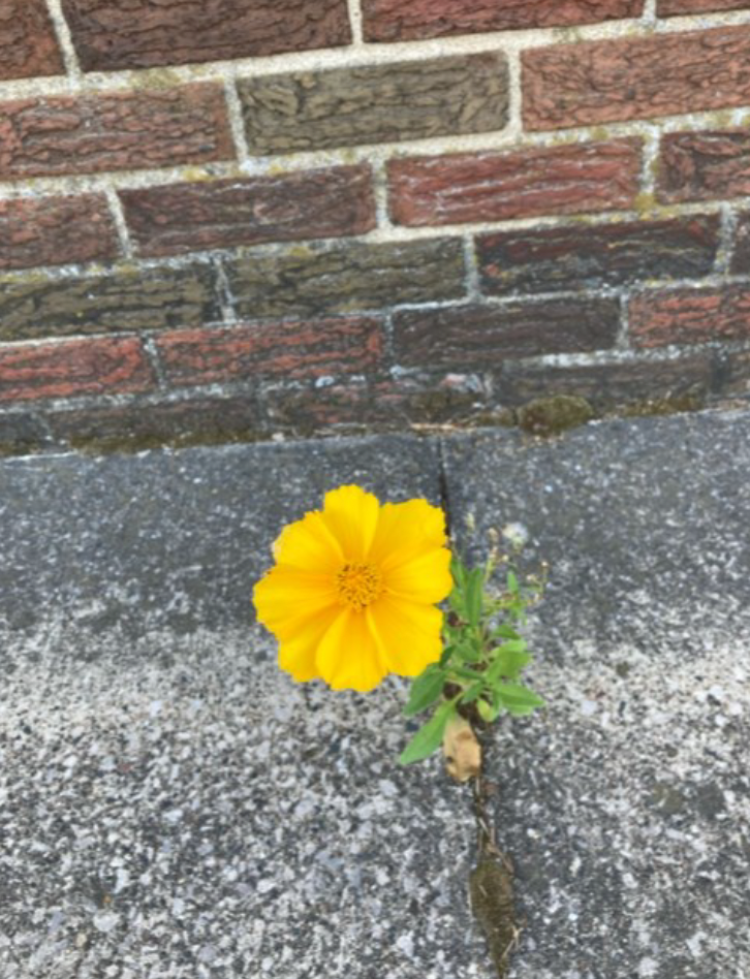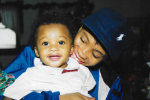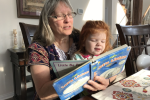Guilt is a very funny thing. In fact, I remember laughing very hard one day at a very simple joke: “I hear you’re not working for that psychiatrist anymore,” the friend said. “I thought you liked that job.”
“I did,” she answered.
“Then why did you quit?” the friend insisted.
“Well, you see,” she said, “when I was late, he said I was passive-aggressive. When I was early, he said I was obsessive-compulsive. And when I was on time, he said I was anal-retentive. That’s more guilt than any one person should bear in any one lifetime, so I quit.”
There’s something very right about that joke. It helps us to see how guilt, used to control a person, can be a weapon of terrible spiritual, as well as, psychological, destruction. It begins in diminishment and ends in self-hatred. That kind of guilt should be fled like the plague.
On the other hand, guilt–the awareness that we want to be more than we are—can be the call to a far better self than either neurosis or irresponsibility can ever possibly make us. The trick is to learn to tell one from the other. It is a perennial problem and part of becoming a spiritual adult.
The desert monastics taught this about guilt: “Once a brother committed a sin in Scetis, and the elders assembled and sent for Abba Moses. He, however, did not want to go. Then the priest sent a message to him, saying: ‘Come, everyone is waiting for you.’ So he finally got up to go. And he took a worn-out basket with holes, filled it with sand, and carried it along. The people who came to greet him said, ‘What is this, Father?’ Then the old man said, ‘My sins are running out behind me, yet I do not see them. And today I have come to judge the sins of someone else.’ When they heard this, they said nothing to the brother, and pardoned him.”
Clearly guilt has a purpose but not, perhaps, so much to accuse us of being ourselves as it is to enable us to remember that we have no right to accuse the other.
The poet Emily Dickinson tenders us another insight about the nature of guilt. She writes:
If I can stop one heart from breaking, I shall not live in vain; If I can ease one life the aching, or cool the pain, or help one fainting robin unto his nest again, I shall not live in vain.
It’s not always what we do that condemns us; it is what we could have done but did not that leaves us lacking.
When we learn how not to judge another and how to do more for others as we go, we may also learn that it is not being sinless that is the goal. It is being good that life is all about.
FRIDAY, NOVEMBER 1: There are two kinds of guilt: good guilt and neurotic guilt. Before you either embrace or reject guilt in your life, figure out the difference between the two.
SATURDAY, NOVEMBER 2: Don’t be afraid to feel guilty about something you did with malice aforethought. Take it as a sign that you are still trying to become more than you are. Take it as a sign of spiritual life.
SUNDAY, NOVEMBER 3: Good guilt is the thing in us that takes responsibility for the ruptures I cause in life because I deliberately chose to be something other than what goodness demands of me. Guilt is what leads me to repair them and then move on.
MONDAY, NOVEMBER 4: Neurotic guilt obsesses about things long gone and done in the past. Worst of all, it fears the present. It binds us with chains of blame and locks us into ourselves in the most narcissistic of ways. Good guilt and bad guilt are not the same thing. Good guilt enables us to do better; bad guilt traps us in things we can no longer do anything to repair.
TUESDAY, NOVEMBER 5: Western civilization has spent a lot of money in the last fifty years trying to get rid of the kinds of groundless guilt that is spawned either by a false sense of self—that anyone is perfect—or a false sense of righteousness—that perfection and goodness are the same thing. And that’s a good thing. But the question for the next fifty years is whether or not each of us doesn’t have to feel responsible for something, if both we and the world are ever to come to fullness.
WEDNESDAY, NOVEMBER 6: Perfectionism is the notion that rationality makes us equal to God. It is a poor substitute for the gift of Divine Mercy. It convinces us that we can and we should perform without error. As if human growth can happen without stretching. And in our arrogance, we believe it of ourselves. It’s a sad situation. Perfectionism makes of us the smallest of gods indeed. It burdens us with a guilt that is both groundless and incurable.
THURSDAY, NOVEMBER 7: A commitment to the perfection of the self that came with 17th-century theologies of sinlessness was the greatest of heresies, the most pathetic of goals, the most deadly of errors. The God who made us knows of what we are made.
FRIDAY, NOVEMBER 8: As a result of the arrogance out of which perfectionism springs, we come to know neither ourselves nor our God. We see no good in ourselves and no goodness in God either. The God we fashion for ourselves is a ruthless, avenging God who makes us creatures who learn from weakness but demands that we be strong.
SATURDAY, NOVEMBER 9: The awareness of human fallibility is not a license to sin. It is the grace that calls us to become all we can be without wrenching ourselves into what no person should ever be—small-minded and emotionally tight and deeply frightened of the self, the world and God’s greatness.
SUNDAY, NOVEMBER 10: We must become everything we can and trust the God who made us to make up for the rest in us.
MONDAY, NOVEMBER 11: Arrogance, the idea that we can be perfect, that we are perfect, is the sin of making ourselves as great as God. It also makes us complete strangers to ourselves. We pretend to be what we are not—we lie to ourselves about the underlying tendencies of our lives. As a result, instead of facing what we need to face, we always, always fail. Even when we are doing our best.
TUESDAY, NOVEMBER 12: The Black Plague, which in the 15th century, killed anywhere from one-third to one-half of the population of Europe was explained as the result of the sins of humanity and the consequent anger of God. Then, religion became an instrument of control and God became a tyrant and good guilt soured within us into a religious sickness that feared life itself.
WEDNESDAY, NOVEMBER 13: The very same God who rescued Moses the murderer and David the adulterer and the idol-worshiping people of Israel became, over the centuries, an instrument of institutional control rather than the sweet center of life.
THURSDAY, NOVEMBER 14: Sin-counters spend as much time concentrating on the things they do as they grow through life, that they fail completely to even think about what they are not doing to make the whole world a better place for everyone else to be. Or as Voltaire puts it: “Every person is guilty of the good they did not do.”
FRIDAY, NOVEMBER 15: There is no one in life who doesn’t feel deeply sorry for something they’ve done in the past, but the purpose of guilt is not to make us residents of the past. The purpose of guilt is to move us beyond it to a place where we become a gift rather than a danger to the world around us.
SATURDAY, NOVEMBER 16: There are two possibilities in life: we either never get over what we did in the past or we never give a thought to what we’re doing now. The first posture is obsessive, the second is selfish. The problem is that either of those two things may be greater sins than the sin that brought us to that point.
SUNDAY, NOVEMBER 17: If I want to make up for what I did not do well in the past, all I have to do is to do something better in the present. Worrying about what I cannot now change is no solution to anything.
MONDAY, NOVEMBER 18: Guilt is not a synonym for obsession and internal collapse and psychological flagellation. Guilt is a synonym for awareness of my weakness and the commitment to do better that comes with it.
TUESDAY, NOVEMBER 19: Nothing turns us in on ourselves and makes us less conscious of others than neurotic guilt. “The guilty think all talk is of themselves,” Chaucer wrote. When we fail to face an issue in us squarely, we live in fear of its exposure all our days. And that’s why the first step to sobriety requires a person to say out loud to someone, “My name is ________ and I am an alcoholic.”
WEDNESDAY, NOVEMBER 20: The Rule of Benedict is clear about the fact that we can never move beyond our sins until we talk about them to someone else. The fifth step of humility, the Rule says, is that “we do not conceal…any sinful thoughts entering our hearts…” It’s facing a thing, not hiding it, that carries us beyond it.
THURSDAY, NOVEMBER 21: Guilt is what tells us that we have offended the human race. After all, God already knows about whatever it is that we’ve done to ourselves. It’s what our sins do to others that plagues us.
FRIDAY, NOVEMBER 22: “Conscience is the inner voice which warns us that someone may be looking,” H. L. Mencken wrote. Sin is a public proposition. Guilt is the sign that I have not done my part to heal the human race.
SATURDAY, NOVEMBER 23: One of the functions of sin is to make us forgiving of others. Knowing who we are in ourselves gives us respect for the goodness and the struggles of others.
SUNDAY, NOVEMBER 24: One of the strange things about neurotic guilt is that people who feel very guilty, who feel that they themselves have been very bad—or would like to be very bad—often become the most reactionary members of a society. Because they know how bad they are, they know how bad everyone else is, too. And they want them controlled.
MONDAY, NOVEMBER 25: A healthy sense of the limits of the self is what makes us gentle with others. Or to put it another way, a sense of our own sinfulness often makes us much better people than we would have been without it.
TUESDAY, NOVEMBER 26: My theology of sin is my theology of God. But the God that most of us have made for ourselves is just as small as we are.
WEDNESDAY, NOVEMBER 27: To prepare ourselves for Christmas is to realize how great a God it is who has come to so small a thing as ourselves. Then the heart expands to take in the rest of the world, just as we know that we have been taken in by God.
THURSDAY, NOVEMBER 28: It is not necessary to feel guilty for not keeping a law until we have asked ourselves whether or not the law should have been written in the first place.
FRIDAY, NOVEMBER 29: The question is, Do I feel guilty because I have failed myself and my idea of what it is to be a truly human, human being? Or, do I feel guilty because I have failed to meet the expectations—and so the approval—of someone else? The distinction is a crucial one. Make it carefully.
SATURDAY, NOVEMBER 30: An old farmer had a son who was in prison for inciting a revolution. The old man wrote to his son in agony. With the boy in prison, he said, not only was the rest of the family in danger, but he now had no one to help him dig the potato garden that was his only means of livelihood. In a matter of days, the young man wrote back: “For heaven’s sake, Father, don’t dig up that garden. That’s where I buried the guns!” Within hours, the army showed up, dug up the entire garden, found nothing at all—let alone guns—and left the land open and raw. The old man, shaken and confused, wrote to the son again describing the raid. “I figured that’s what would happen,” the boy wrote back. “So now just plant your potatoes, Father, that is the best I can do for you right now.” Question: Who sinned here and of what were they guilty? Really.
LET’S SHARE OUR THOUGHTS
The following discussion questions, Scripture echo, journal prompts, and prayer are meant to help you reflect more deeply on The Monastic Way. Choose at least two suggestions and respond to them. You may do it as a personal practice or gather a group interested in sharing the spiritual journey.
DISCUSSION QUESTIONS
1. How would you explain the point of the desert story that Joan Chittister tells near the beginning of this issue? Is there another way that you could express it, in a story from your own experience?
2. Which daily quote in The Monastic Way is most meaningful to you? Why? Do you agree with it? Disagree? Did it inspire you? Challenge you? Raise questions for you?
3. After reading The Monastic Way, write one question that you would like to ask the author about this month’s topic.
4. Joan Chittister uses other literature to reinforce and expand her writing. Find another quote, poem, story, song, art piece, or novel that echoes the theme of this month’s Monastic Way.
5. How have you dealt with guilt, and how have you let it go or learned from it?
JOURNAL PROMPTS
Prompt 1: Here are a few statements from this month’s Monastic Way. Choose one that is most helpful to you and journal with it.
• “My theology of sin is my theology of God. But the God that most of us have made for ourselves is just as small as we are.”
• “We must become everything we can and trust the God who made us to make up for the rest in us.”
• “One of the functions of sin is to make us forgiving of others.”
Prompt 2: Spend a few minutes with this photograph and journal about its relationship to this month’s Monastic Way. You can do that with prose or a poem or a song or....
SCRIPTURE ECHO
Jesus said, "Let any one of you who is without sin be the first to throw a stone at her.” —John 8:7
PRAYER
Prayer for a Restoration of Peace and Justice
Holy Spirit, it is time.
Now overtake our hearts with your fire.
On earth let the flame of justice
leap wildly.
Release in us a brilliant blaze of compassion.
Let the fires burn away all pettiness,
greed, selfishness, and lust for security.
Let embers of kindness fill the land.
Whoever holds a debt, it will be forgiven.
Whoever is rich will give half away:
land returned to the peasant,
prison doors thrown open,
military budgets dissolved,
a cup of water given in Jesus’ name.
Again.
Again.
And yet again.
Amen.

 Artwork: by Mary Miller, OSB
Artwork: by Mary Miller, OSB




